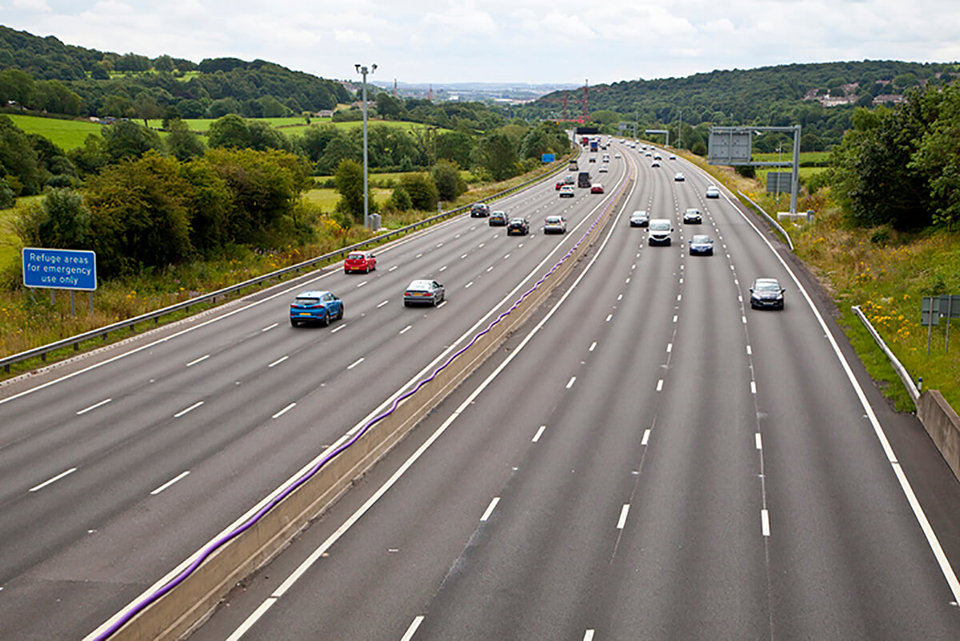One year on from launching the transport decarbonisation plan, the Department for Transport (DfT) has set out its next steps to drive down greenhouse gas emissions from transport.
The report, Decarbonising Transport: A Better, Greener Britain, highlights the progress made to date, such as the £200 million zero-emission HGV trials and the zero-emission vehicle mandate to ensure that the supply of electric vehicles (EVs) meets the soaring demand.
The ZEV mandate comes into force in 2024 and the DfT report says that the Government will soon publish a final public consultation on the proposed regulatory framework, with a view to laying regulations in early 2023.
It will also consult on changes to driving licence flexibility for alternatively fuelled vehicles weighing up to 4.25 tonnes, to reduce costs and increase the number of drivers eligible to drive an alternatively fuelled vehicle on a standard licence.
In 2018, UK law was changed so that the weight limit for Category B driving licence holders driving alternatively fuelled vehicles could be increased from 3.5 tonnes to 4.25 tonnes.
The 2018 Regulations rely on a temporary derogation from the European Union third Driving Licence Directive (2006/126/EC).
This derogation was issued by the European Commission in May 2018, and at the time the DfT said it intended to keep the requirements from the 2018 regulations in place until at least 2023 and would conduct a review of the legislation in advance, to evaluate the impact of the legislation and consider whether it is still necessary.
Furthermore, the new report says that it will continue to work towards target of 25% of the Government’s car fleet to be ultra-low emission by the end of 2022, and it will continue to work closely with the MCIA and Zemo Partnership to realise the full potential of the zero emission L-category sector.
Local authorities to produce local charging strategies
In terms of infrastructure, the DfT says it will take powers in the Transport Bill to oblige local authorities to produce and implement local charging strategies.
It will also regulate to improve the consumer experience of public charging, such as making it easier to pay and publish British Standards Institute (BSI) standards setting out best practice on accessible design of public charge points.
In addition, it says Project Rapid will increase the number of electric vehicle charge points on England’s motorways and major A-roads and it will deliver a reformed Electric Vehicle Homecharge Scheme – to focus on renters, leaseholders and those living in flats – and expand the Workplace Charging Scheme.
Furthermore, it will take forward the Local EV Infrastructure Fund (LEVI) to support local authorities, working with industry, to deliver charging for drivers without off-street parking.
Delivering a zero-emission freight and logistics sector
In terms of heavier vehicles, the DfT says it will publish the response to the call for evidence on exemptions to the 2035 HGV phase out date for HGVs 26 tonnes and under and launch battery electric and hydrogen fuel cell competitions for the Zero Emission Road Freight Demonstrator programme.
It will also design and consult on the future regulatory framework which will enforce HGV phase out dates and convene industry stakeholders to work together to develop a plan for zero-emission HGV infrastructure rollout and the role of the public and private sectors to achieve this.
Furthermore, it will develop proposals for a rail freight growth target, helping to shift freight onto more sustainable transport.
Maximising the benefits of sustainable low carbon fuels
The DfT says it wants to make E10 available across the UK, with its introduction in Northern Ireland planned for winter 2022 and will continue to increase the main Renewable Transport Fuel Obligation ( RTFO ) target up to a total of 5% by 2032.
It will also confirm changes to the RTFO this summer to maximise transport's use of additional green hydrogen and publish its plan for the next phase of the Tees Valley Hydrogen Transport Hub, which will include support for supply and demand demonstrators, informing our future policy position and investment decisions.
Future transport – more choice, better efficiency
Finally, the DfT says it will publish the Mobility as a Service Code of Practice to signal the UK’s intent for Mobility as a Service to help shape transport outcomes.
It will publish the findings from e-scooter trials, evaluating their environmental and safety impacts and impacts on other road users. This will inform future regulation, including elements to be taken forward through the Transport Bill.
It will also work with industry to develop a shared understanding of future skills needs for the future of transport and net zero challenge and identify actions to ensure skills and employment programmes meet those needs.
In addition, it will build on responses to our recent consultation to develop and publish the Future of Transport Rural Strategy to address transport challenges faced by rural communities.
























Login to comment
Comments
No comments have been made yet.